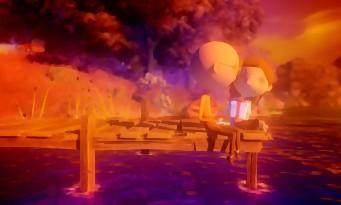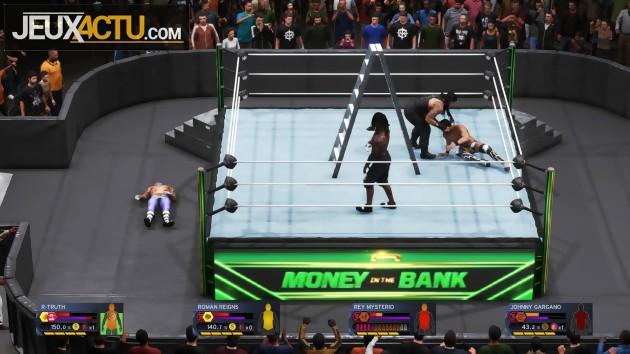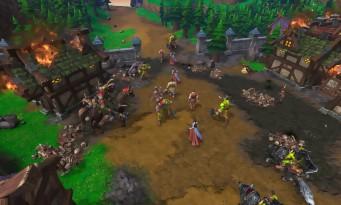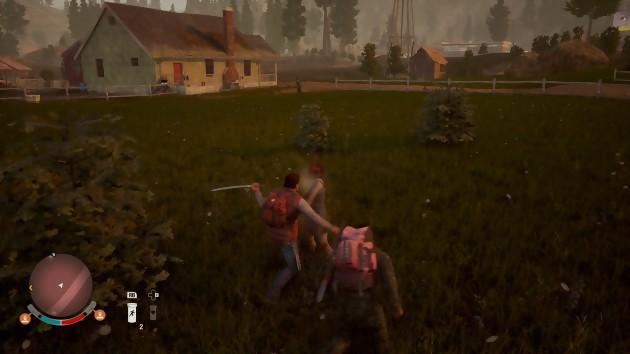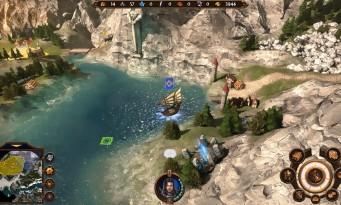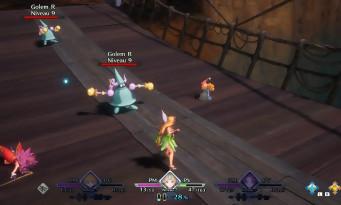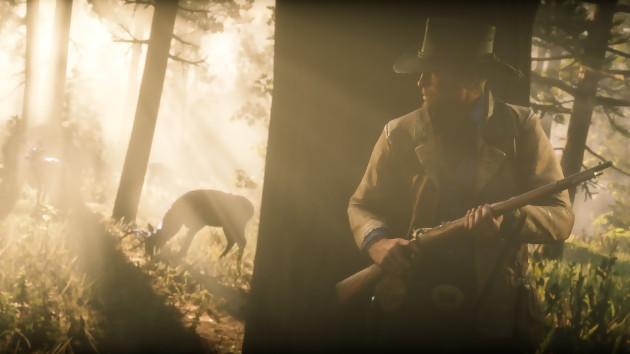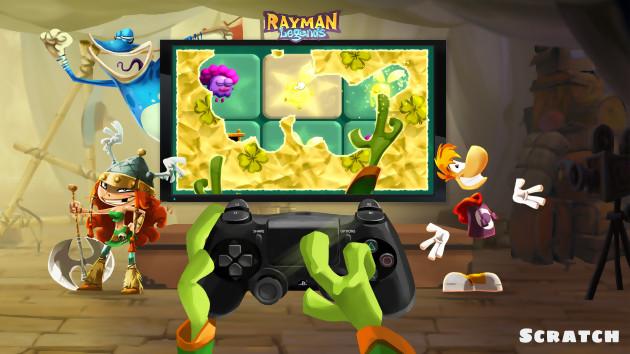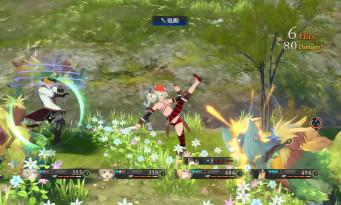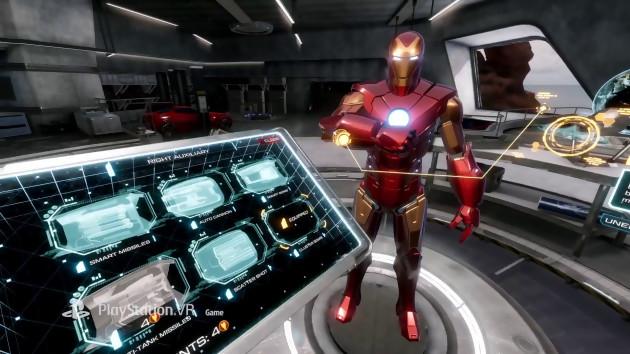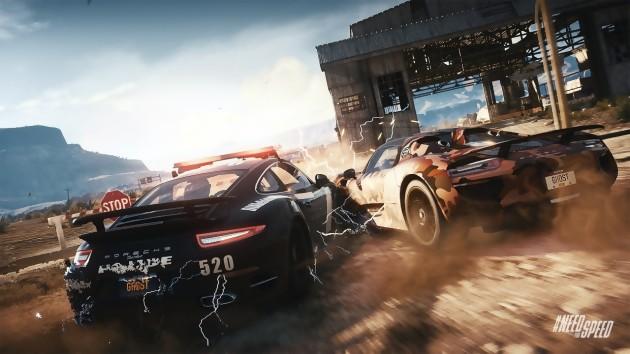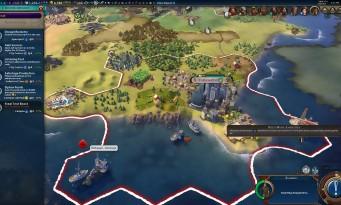 First observation which is essential when one is preparing feverishly to launch the very first game in Civilization VI: the customization options of the game have slightly decreased. If the twenty leaders present offer a wide choice in terms of buffs and other advantages to stick well to your objectives and the victory you are aiming for (military, cultural, scientific, religious, etc.), there are only 6 types of maps, without the real planet Earth. Farewell to this little advantage that allowed you to know where your first city was by discovering a small area of the map. From now on, exploration will be an obligation. No matter, once all the settings are made, we find ourselves on familiar ground. Firaxis has kept all the nomenclature of previous games, so we know where to find the information we want and we quickly come to determine the reason for a failure. First big difference that is obvious: the graphic style. We admit that we weren't really thrilled by the first screenshots revealing this somewhat cartoonish style, more drawn and which moves away from the realistic approach of Civilization V. Is the game ugly for all that? Absolutely not. In game, we don't feel any discomfort and this new artistic direction is far from being a step backwards. The graphics are always very detailed and by zooming in to the maximum, we discover a lot of animations, whether it's units or your cities which are even more beautiful thanks to the new district system.
First observation which is essential when one is preparing feverishly to launch the very first game in Civilization VI: the customization options of the game have slightly decreased. If the twenty leaders present offer a wide choice in terms of buffs and other advantages to stick well to your objectives and the victory you are aiming for (military, cultural, scientific, religious, etc.), there are only 6 types of maps, without the real planet Earth. Farewell to this little advantage that allowed you to know where your first city was by discovering a small area of the map. From now on, exploration will be an obligation. No matter, once all the settings are made, we find ourselves on familiar ground. Firaxis has kept all the nomenclature of previous games, so we know where to find the information we want and we quickly come to determine the reason for a failure. First big difference that is obvious: the graphic style. We admit that we weren't really thrilled by the first screenshots revealing this somewhat cartoonish style, more drawn and which moves away from the realistic approach of Civilization V. Is the game ugly for all that? Absolutely not. In game, we don't feel any discomfort and this new artistic direction is far from being a step backwards. The graphics are always very detailed and by zooming in to the maximum, we discover a lot of animations, whether it's units or your cities which are even more beautiful thanks to the new district system.
RETURN TO TIÉKAR
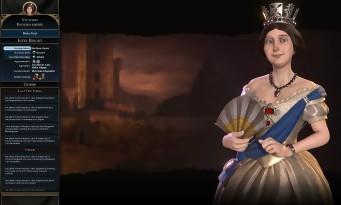 No more cities that occupy only one hex! As in real life, your cities will expand geographically as they grow from thatched cottage villages to galloping megalopolises bristling with concrete and glass skyscrapers. When you build a city, the settlers form what will be the city center. An entity that can be improved as in previous games, but within certain limits. As the city grows, new neighborhoods can be built on adjacent squares. Each district will thus be specialized in one or other of the game's victory axes. The military district will provide bonuses for the combat units produced in the city, the commercial district will earn money, thus contributing to the finances of the city. state, while the religious district will contribute to the influence of our theology. Obviously, the more you progress in the technology tree, the more specialized areas you will unlock, such as the airport or the space shooting pad. Some districts will nevertheless be essential for the proper development of your city. Thus, the aqueduct – which will also take up a space – will increase the production of food while providing additional housing for the population. In the same vein, we can create residences and even a district dedicated to entertainment. The latter is essential since it provides essential equipment to the good mood of the citizens. Exit the traditional happiness gauge, it will now be necessary to micro-manage this aspect city by city. Be careful not to upset your people who could, after several turns of indifference on your part, embark on a revolution in good and due form.
No more cities that occupy only one hex! As in real life, your cities will expand geographically as they grow from thatched cottage villages to galloping megalopolises bristling with concrete and glass skyscrapers. When you build a city, the settlers form what will be the city center. An entity that can be improved as in previous games, but within certain limits. As the city grows, new neighborhoods can be built on adjacent squares. Each district will thus be specialized in one or other of the game's victory axes. The military district will provide bonuses for the combat units produced in the city, the commercial district will earn money, thus contributing to the finances of the city. state, while the religious district will contribute to the influence of our theology. Obviously, the more you progress in the technology tree, the more specialized areas you will unlock, such as the airport or the space shooting pad. Some districts will nevertheless be essential for the proper development of your city. Thus, the aqueduct – which will also take up a space – will increase the production of food while providing additional housing for the population. In the same vein, we can create residences and even a district dedicated to entertainment. The latter is essential since it provides essential equipment to the good mood of the citizens. Exit the traditional happiness gauge, it will now be necessary to micro-manage this aspect city by city. Be careful not to upset your people who could, after several turns of indifference on your part, embark on a revolution in good and due form.
Exit the traditional happiness gauge, it will now be necessary to micro-manage this aspect city by city. Be careful not to upset your people who could, after several turns of indifference on your part, embark on a revolution in good and due form.
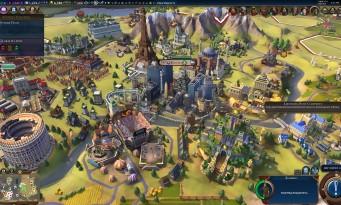 Far from being anecdotal, this new system requires us to develop planning skills since each new district will take up a space around the city center. The location of the districts is really crucial, because depending on the hexagon chosen, you get a more or less significant multiplier effect. To return to the example of housing estates, a square in the middle of the desert next to an industrial area will only give you two additional dwellings. Conversely, if you choose a location by the sea, near a natural wonder or next to the entertainment district, the multipliers of the adjacent spaces can increase the number of dwellings up to six. This interoperability system works across all districts, so being a master of urbanization is a must to get the most out of your work. Obviously, the real estate projects will not be free and each district will require more or less production before being finished. But beyond the cost in terms of production, there will be an indirect price to pay, that linked to the location. If the military base is built on a space that provided food and production to your city, you can say goodbye to these resources. Moreover, the problem remains the same with wonders that you can only erect on locations that meet the right criteria. A problem all the more present that if we have started to build farms or other improvements with our workers, these will also be lost. To compensate for this loss of production, each district can in turn be furnished with different buildings related to its nature. For example, the religious quarter can be upgraded with a temple, a cathedral, an altar and more. The airport will be able to benefit from a larger hangar to base more planes.
Far from being anecdotal, this new system requires us to develop planning skills since each new district will take up a space around the city center. The location of the districts is really crucial, because depending on the hexagon chosen, you get a more or less significant multiplier effect. To return to the example of housing estates, a square in the middle of the desert next to an industrial area will only give you two additional dwellings. Conversely, if you choose a location by the sea, near a natural wonder or next to the entertainment district, the multipliers of the adjacent spaces can increase the number of dwellings up to six. This interoperability system works across all districts, so being a master of urbanization is a must to get the most out of your work. Obviously, the real estate projects will not be free and each district will require more or less production before being finished. But beyond the cost in terms of production, there will be an indirect price to pay, that linked to the location. If the military base is built on a space that provided food and production to your city, you can say goodbye to these resources. Moreover, the problem remains the same with wonders that you can only erect on locations that meet the right criteria. A problem all the more present that if we have started to build farms or other improvements with our workers, these will also be lost. To compensate for this loss of production, each district can in turn be furnished with different buildings related to its nature. For example, the religious quarter can be upgraded with a temple, a cathedral, an altar and more. The airport will be able to benefit from a larger hangar to base more planes.
LEADER AND PROMOTER
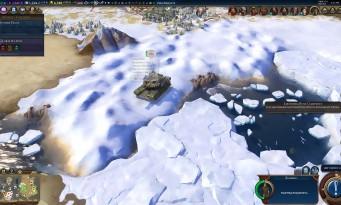 Anticipation will therefore be the key to good urbanization, especially since the workers have been dramatically modified. No more question of building an army that will take care of creating roads and farms all over your territory. Each worker will only be able to perform two upgrades before the unit is consumed. As a result, each upgrade actually costs you half the price of your worker; a tragedy when you have to replace it with a launch pad that you will also pay for head over heels. Here again we come back to the need to plan for everything. Since there is no more automatic mode, we will have to really invest in the process of terraforming our country, whether it is digging mines or establishing farms. Good news, however, since the workers have lost some of their prerogatives, including that – essential – of building roads. The road network will be automatically built by the merchant caravans which therefore take on a new interest. In addition to their merchant role which grants you bonuses in food, production, science and above all a bundle of money, your caravans will build roads along their route. Thus, we will now have to consider a trade route that is not very interesting from an economic point of view, but capital since we need to connect one city to another by a road in order to reduce the movement time of the units. A transfer of skills that greatly benefits the game, as workers and trade caravans become ever more important units than in the past.
Anticipation will therefore be the key to good urbanization, especially since the workers have been dramatically modified. No more question of building an army that will take care of creating roads and farms all over your territory. Each worker will only be able to perform two upgrades before the unit is consumed. As a result, each upgrade actually costs you half the price of your worker; a tragedy when you have to replace it with a launch pad that you will also pay for head over heels. Here again we come back to the need to plan for everything. Since there is no more automatic mode, we will have to really invest in the process of terraforming our country, whether it is digging mines or establishing farms. Good news, however, since the workers have lost some of their prerogatives, including that – essential – of building roads. The road network will be automatically built by the merchant caravans which therefore take on a new interest. In addition to their merchant role which grants you bonuses in food, production, science and above all a bundle of money, your caravans will build roads along their route. Thus, we will now have to consider a trade route that is not very interesting from an economic point of view, but capital since we need to connect one city to another by a road in order to reduce the movement time of the units. A transfer of skills that greatly benefits the game, as workers and trade caravans become ever more important units than in the past.
Thus, we will now have to consider a trade route that is not very interesting from an economic point of view, but capital since we need to connect one city to another by a road in order to reduce the movement time of the units.
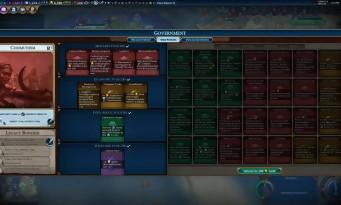 This growing importance is also seen with the military units that we will now be able to use in new ways. First of all, it is now possible to create army corps by merging up to three similar units. Enough to free up space on your battlefield for better readability, while avoiding being able to bring out the good old Civilization II "Pile of Doom" tactic (when stacking 50 military units on a box). Another novelty: the arrival of the medic unit, which as its name suggests, will make it possible to reinflate the life gauge of combat units without having to put them to rest. Those who have become accustomed to having their unit of colonists robbed by barbarians will also be delighted to learn that an escort function has emerged in this sixth opus. We can link a military unit to a non-combatant unit such as an apostle, a settler or even a worker, in order to protect it from attacks which will then impact the escorting military unit. This capital addition finally allows us to extend the empire on a larger scale, an essential novelty when you know the size that a city can take once surrounded by the many specialized districts. Your army will be put to the test no matter what, since the barbarians have gained in intensity. Previously relegated to the role of spice at the start of the game, they are now present throughout the game as soon as a space is not colonized, with a much higher spawn rate than before. To complicate the task, their units evolve over time and it is not uncommon to see them land with equipment at least as good as us. Accustomed to seeing mid-game barbarian archers, you can imagine our surprise at the sight of mechanized infantry units. No more question of being quiet while cleaning the villages, since the latter will reappear after a few turns as long as the space is not colonized.
This growing importance is also seen with the military units that we will now be able to use in new ways. First of all, it is now possible to create army corps by merging up to three similar units. Enough to free up space on your battlefield for better readability, while avoiding being able to bring out the good old Civilization II "Pile of Doom" tactic (when stacking 50 military units on a box). Another novelty: the arrival of the medic unit, which as its name suggests, will make it possible to reinflate the life gauge of combat units without having to put them to rest. Those who have become accustomed to having their unit of colonists robbed by barbarians will also be delighted to learn that an escort function has emerged in this sixth opus. We can link a military unit to a non-combatant unit such as an apostle, a settler or even a worker, in order to protect it from attacks which will then impact the escorting military unit. This capital addition finally allows us to extend the empire on a larger scale, an essential novelty when you know the size that a city can take once surrounded by the many specialized districts. Your army will be put to the test no matter what, since the barbarians have gained in intensity. Previously relegated to the role of spice at the start of the game, they are now present throughout the game as soon as a space is not colonized, with a much higher spawn rate than before. To complicate the task, their units evolve over time and it is not uncommon to see them land with equipment at least as good as us. Accustomed to seeing mid-game barbarian archers, you can imagine our surprise at the sight of mechanized infantry units. No more question of being quiet while cleaning the villages, since the latter will reappear after a few turns as long as the space is not colonized.
"IN GOD WE TRUST. ELSE WE MONITOR"
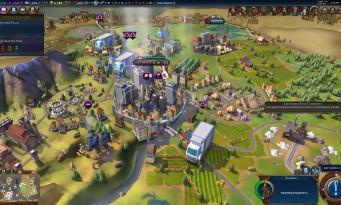 It is ultimately at the political level that things are changing the least. Espionage has returned to a unit-based system like in Civilization IV, while Home Affairs management is changing in small touches. The government system has evolved slightly with a card-based mechanism. There are 9 possible regimes classified into three levels. In short, one regime emphasizes the military, another the economy, while the last favors diplomacy. This orientation translates into the number of slots that can be filled with cards, each card granting a specific bonus in one of these three orientations. As always, Regimes will be unlocked based on your reputation points and choices made in the political tree. These points will also be used to unlock the emissaries. This is actually the new mechanic for using city-states. Depending on the number of envoys placed, you will obtain certain advantages, always depending on the preferred domain of the city-state. If Monaco specializes in the economy, the more emissaries you place, the more economic bonuses you earn. No longer need to go through financial donations or trade routes. On a larger scale, diplomacy has ultimately not evolved so much. Farewell to the state council system since Firaxis has gone back – there too – to a system closer to Civilization IV. Every leader will like you - or not - based on your actions and your differences. It then becomes much easier to manage one's foreign policy in the face of AIs whose motivations can be understood. We will find the usual treaties, the ability to negotiate deals on resources and even that of forming alliances before going to war.
It is ultimately at the political level that things are changing the least. Espionage has returned to a unit-based system like in Civilization IV, while Home Affairs management is changing in small touches. The government system has evolved slightly with a card-based mechanism. There are 9 possible regimes classified into three levels. In short, one regime emphasizes the military, another the economy, while the last favors diplomacy. This orientation translates into the number of slots that can be filled with cards, each card granting a specific bonus in one of these three orientations. As always, Regimes will be unlocked based on your reputation points and choices made in the political tree. These points will also be used to unlock the emissaries. This is actually the new mechanic for using city-states. Depending on the number of envoys placed, you will obtain certain advantages, always depending on the preferred domain of the city-state. If Monaco specializes in the economy, the more emissaries you place, the more economic bonuses you earn. No longer need to go through financial donations or trade routes. On a larger scale, diplomacy has ultimately not evolved so much. Farewell to the state council system since Firaxis has gone back – there too – to a system closer to Civilization IV. Every leader will like you - or not - based on your actions and your differences. It then becomes much easier to manage one's foreign policy in the face of AIs whose motivations can be understood. We will find the usual treaties, the ability to negotiate deals on resources and even that of forming alliances before going to war.
The only problem ultimately lies in the AI itself. Its behaviors are quite irrational, since a leader can make contradictory decisions in the space of just a few turns.
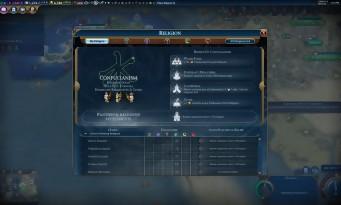 The only problem ultimately lies in the AI itself. Its behaviors are quite irrational, since a leader can make contradictory decisions in the space of just a few turns. Similarly, by negotiating a deal with Roosevelt, the latter offered us – after many negotiations – an offer much higher than the initial offer he had rejected. Without being an expert in negotiation, the AI does not defend itself too badly on the ground, however, especially when you choose a slightly difficult difficulty. This doesn't solve all the problems, however the tactics and the objectives tracked seem a little more stable. It was thus quickly understood that Saladin was seeking religious victory in view of the waves of apostles and missionaries landing on our shores. This also allowed us to discover that the system of religion had progressed in the right direction. We now have units of inquisitors who prove to be formidable for recovering a converted city, via a good old hunt for heretics. The latter are also very effective during religious wars, where they destroy enemy evangelizers during memorable clashes with prayers and divine lightning. When they are produced in a fully equipped religious district, they can also be granted bonuses, on the same model as military units. More effective in combat, better preacher in a city or even creator of relics are among the buffs that we can add to our divine troops to maximize their impact.
The only problem ultimately lies in the AI itself. Its behaviors are quite irrational, since a leader can make contradictory decisions in the space of just a few turns. Similarly, by negotiating a deal with Roosevelt, the latter offered us – after many negotiations – an offer much higher than the initial offer he had rejected. Without being an expert in negotiation, the AI does not defend itself too badly on the ground, however, especially when you choose a slightly difficult difficulty. This doesn't solve all the problems, however the tactics and the objectives tracked seem a little more stable. It was thus quickly understood that Saladin was seeking religious victory in view of the waves of apostles and missionaries landing on our shores. This also allowed us to discover that the system of religion had progressed in the right direction. We now have units of inquisitors who prove to be formidable for recovering a converted city, via a good old hunt for heretics. The latter are also very effective during religious wars, where they destroy enemy evangelizers during memorable clashes with prayers and divine lightning. When they are produced in a fully equipped religious district, they can also be granted bonuses, on the same model as military units. More effective in combat, better preacher in a city or even creator of relics are among the buffs that we can add to our divine troops to maximize their impact.





